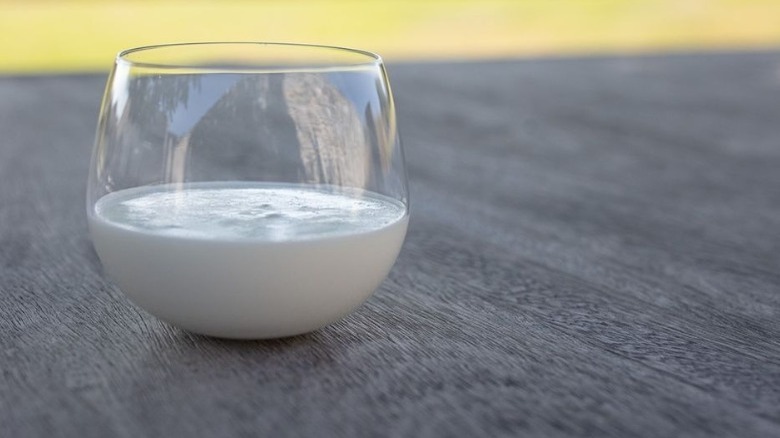The Reason Deer Milk Isn't Very Popular
Several milk options have cropped up for consumers who aren't all that into cow milk-based dairy. These include things such as goat milk, almond milk, cashew milk, oat milk, and ... deer milk? According to Mental Floss, for those who want to try their lattes with a really unique twist, this could well be an alternative option worth considering. At least, so long as your local stores or coffee shops are offering it. Deer milk is currently on the menu in places in New Zealand. There, a local brand known as the Pāmu Company has been credited with introducing this new form of dairy to consumers.
The brand's website offers curious consumers more insight into its deer milk. "Pāmu Deer Milk is sourced from the lush countryside of the South Island, New Zealand," the brand says. "It not only offers exquisite flavours, but is a sophisticated ingredient with endless possibilities." It might be better for you, too. According to Mental Floss, deer milk is actually a richer source of protein and has less sugar than cow's milk. Yet, despite some of these clear benefits, it has failed to appeal to the masses so far.
There's a very simple reason deer milk hasn't caught on
Why has deer milk not managed to appeal to customers on a large scale so far? According to Mental Floss, one of the major reasons for this is simply because of low supply. Deer cannot naturally provide a lot of milk, certainly not when compared to dairy cows. This means that Pāmu only receives about a few hundred liters of milk from an individual deer during a single season. In comparison, a cow can provide 8,700 liters (nearly 2,300 gallons) in that same period.
Additionally, many places don't really domesticate deer on a large scale, further limiting the availability of their milk. But, if you happen to come across it in your culinary travels, give deer milk a try. Those who've tried deer milk say that it has a savory flavor. And, in 2018, Pāmu received an award at the New Zealand Food Awards for its deer milk, which was declared as the "most novel product" (via Pāmu). It's believed to work well especially in luxurious sweet treats and cocktails.

